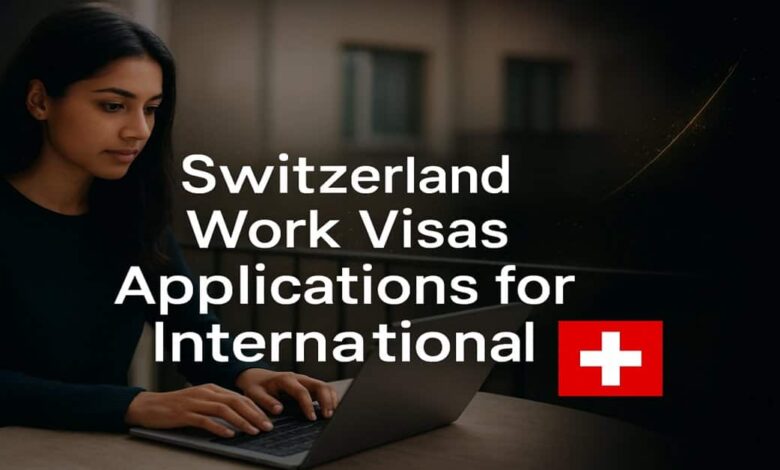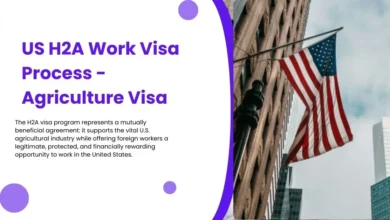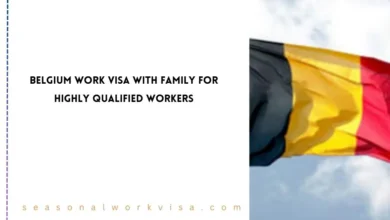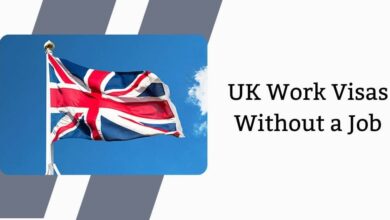Switzerland Work Visas Applications for International 2026

Looking to build your career in Switzerland in 2026? Whether it’s a short-term project or a long-term professional journey, Switzerland offers a variety of work visa options that fit your goals. From temporary permits for short assignments to permanent residence for those ready to truly settle, the Swiss system is designed to welcome skilled professionals from both EU/EFTA and non-EU countries.
Major Pathways to Work in Switzerland:
Regarding international workers in Switzerland, the country provides a precise framework. Generally speaking, work authorisation comes into one of two types of visas or residency permits:
Long-Term Work and Residence Permits (For Stays Over 90 Days):
These enable you to live and work in Switzerland for an extended period of time and are necessary for full-time employment. One of the following permits could be granted to you, depending on your country, employer, and qualifications:
- Permit L (Short-term residence) Short-term residency permit L is valid for a maximum of 12 months and is renewable for an additional 24 months.
- Permit B (Initial residence) A one-year permit that is renewed every year.
- Permit C (Permanent residence) After five to ten years of continuous residency, Permit C (Permanent Residence) is granted.
- Cross-border commuter permits (G permit) People who live in EU/EEA nations but work in Switzerland are eligible for cross-border commuter permits, often known as G permits.
Short-Term Work Permits (Up to 90 Days):
For short-term, internship, or seasonal projects. With a few exceptions for EU nationals, employers apply through the short-term work notification procedure.
Swiss Work Permits by Citizenship:
If You’re from the EU/EFTA:
- Under bilateral agreements, you can start working more readily and enter Switzerland without a visa.
- If you want to remain longer than ninety days, you will still need to register and apply for a work or residence permit.
- Employer notification may be all that is needed for short-term positions lasting less than 90 days.
If You’re from a Non-EU Country:
- The labour market test requires your company to demonstrate that there are no suitable Swiss or EU/EFTA candidates available.
- You must possess a high level of skill (e.g., work experience, university degree).
- Every year, quotas apply for B and L permits.
Popular Swiss Work Visa Options:
1. Permit L – Short-Term Work Permit
- Duration: Up to 1 year (renewable once in some cases).
- Ideal For: Temporary or project-based employment.
- Eligibility: Applications are accepted from both EU and non-EU citizens, although a current employment contract is necessary first.
- Purpose: Internships, short-term contracts, or short-term assignments.
2. Permit B – Long-Term Work and Residence Permit
- Duration: Issued for one year, renewable annually.
- Ideal For: Skilled professionals seeking long-term employment in Switzerland.
- Eligibility:
- EU/EFTA citizens: Generally easier access.
- Non-EU citizens: Citizens: Need to be highly qualified, adhere to Switzerland’s annual labour quota system, and meet strict qualification requirements.
- Purpose: permanent positions, particularly in fields where competent workers are in low supply.
3. Permit G – Cross-Border Commuter Permit
- Duration: Indefinite (renewable with employment).
- Ideal For: People who live abroad but work in Switzerland are from nearby EU nations.
- Eligibility:
- must reside in one of the EU’s bordering countries, such as France, Germany, or Italy.
- You must visit your home nation at least once every seven days.
- Purpose: Enables cross-border workers to work in Switzerland without relocating.
4. Permit C – Settlement Permit (Permanent Residency)
- Duration: Indefinite.
- Ideal For: people who want to live and work in Switzerland for an extended period of time.
- Eligibility:
- EU/EFTA citizens: Eligible after 5 years of continuous stay.
- Non-EU citizens: Eligible after 10 years.
- Integration, including financial stability and language skills, must be shown.
Family Inclusion:
- EU/EFTA employees: Have easier access to family members.
- Non-EU employees: Need to demonstrate adequate housing, income, and integrating skills.
- Spouses are only permitted to work with permission.
- Children can enrol in Swiss schools and join as dependants.
Swiss Work Visa Duration, Processing Time & Costs:
The most recent data sheet for each type of Swiss work visa, including application fees, processing time, visa period, and potential for family inclusion, is provided below:
| Visa Type | Processing Time | Duration | Cost (Approx.) | Family Included? |
|---|---|---|---|---|
| Permit L | 3–8 weeks | Up to 1 year | CHF 100–150 | Yes (limited) |
| Permit B | 8–12 weeks | 1 year (renewable) | CHF 150–200 | Yes |
| Permit C | N/A (via B pathway) | Indefinite | N/A | Yes |
| Cross-border G | 2–4 weeks | 1 year | CHF 80–120 | Yes (conditions) |
| Visa D (Entry) | 4–12 weeks | Depends on permit | CHF 88–150 | Yes |
Process for Switzerland Work Visas Applications for International:
To obtain a job and visa, non-EU professionals must complete the following:
- Obtain an offer of employment from a Swiss company.
- The employer goes to the cantonal migration office to apply for a work permit.
- Cantonal Approval: The application is evaluated by the canton according to qualifications, wage criteria, and quotas.
- Federal Approval: A final approval from the State Secretariat for Migration (SEM) is required.
- Application for Visa: After being granted, you go to the Swiss embassy in your nation to apply for a long-stay national visa (D visa).
- Arrival and Registration: Upon arrival in Switzerland, obtain your residence/work permit by registering at the local Residents’ Registry Office.
Where to Find Swiss Job Offers?
Finding the suitable employer is the first step in starting a career in Switzerland. These are a few of the best job portals:
- jobup.ch
- jobs.ch
- SwissDevJobs
- ETH Zurich Careers
- Academic Positions Switzerland.
References:
- Swiss Migration Secretariat: https://www.sem.admin.ch/sem/de/home.html
- Work in Switzerland Portal: https://www.ch.ch/en/work/
- Job Market Overview: https://www.bfs.admin.ch/bfs/de/home.html
- Entry for Foreign Workers: https://www.ch.ch/en/foreign-nationals-in-switzerland/working-in-switzerland/
Conclusion:
Switzerland offers diverse work visa options in 2026, from short-term permits to permanent residency, catering to both EU/EFTA and non-EU professionals. The application process ensures skilled candidates meet local standards while supporting family inclusion. With the right permit, living and working in Switzerland becomes a fulfilling blend of career growth and lifestyle opportunities.
Frequently Asked Questions:
Who is eligible to apply for a Swiss work visa
Eligibility is open to both EU/EFTA and non-EU citizens. While non-EU professionals must be highly skilled and fulfill specific requirements, such as employment offers and quotas, EU/EFTA nationals have simpler access.
Can I bring my spouse and children with me?
Yes, family members may be brought by both EU/EFTA and non-EU nationals. Non-EU applicants must, however, demonstrate adequate housing, income, and integrating abilities. Special permission to work may be required for spouses.




